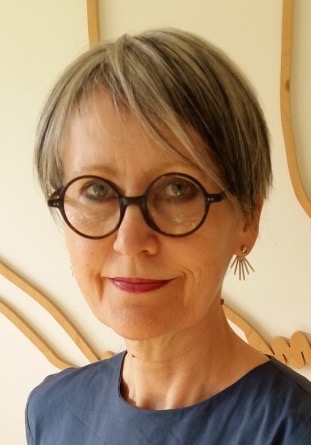Equilibrium
- Elise V Allan

- Jun 11, 2020
- 3 min read

Thinking positively, and thinking negatively don’t always do what they say on the tin. We might over focus on the torment, always comparing ourselves unfavourably to others. And yet we might still manage to create, able to keep going despite immense challenges, all the while complaining that ‘Life, the Universe and Everything’ is not backing us up. Or we might over focus on the bright side, rejoicing in creative visions that are too beautiful to drag down to earth and make solid. As positive thinkers, opportunities that prevent us from actually making the work might appear to be heaven sent, gifts from ‘Life, the Universe and Everything’, so serendipitous that they mustn’t be missed. Meanwhile the opportunities to do what we long to do slip away.
Sometimes it can indeed feel clear that synchronicity, or ‘Life, the Universe and Everything’, is giving us feedback. But our interpretation of what that feedback means can be a mental construct based on our hopes and fears. “The Universe did not intend me to start on my novel or it would not have sent me such a good opportunity to do something else.” Or, “I got to the studio but Life is giving me the message that I’m doing the wrong thing because it was difficult when I got there, and I’m not experiencing the wild success I had hoped for.” We create a fantasy of ‘Life, the Universe and Everything’ and its intentions as if it is a parent who is bribing us, rewarding us or chastising us. Seeing Life as the old punitive bearded Almighty sending plagues and throwing thunderbolts. Or the Universe as a Victorian school teacher who assesses us, and having marked us out of ten, gives us a prize or a dunce’s cap.
Many students and clients say they want more confidence. They want to feel better about their creative capabilities, believing that the best way forward would be a more positive anticipation of what they will be able to do. While I am very familiar with the anxieties involved in trying something new with no guarantee of doing it well, this seems back to front. It’s after we have worked on our skills that we can recognise progress and our confidence can grow.
And if we are to assess ourselves, we need some realism about what level of growth and success we are aiming for. I’ve taught beginners’ life classes, where after the fifth week, a participant has been desperately disappointed that he doesn’t yet draw like Michelangelo. This is simultaneously self denigrating, ignoring his actual achievements, and ridiculously arrogant. Michelangelo once said, “If people knew how hard I worked to get my mastery, it wouldn’t seem so wonderful at all.” By ‘working hard’ I’m guessing Michelangelo meant more than five two-hour sessions.
If I compare my life’s work as a painter to the best work of the artists I most admire, I could feel more than a little depressed. While if I compare myself to the least appealing efforts of a nervous beginner in a painting class, I could feel quite puffed up. Neither would be helpful. Maintaining either arrogance or self-loathing will throw a major obstacle in my way if I want to experience any spark of aliveness in my creativity. But moments of self-denigration or of arrogance can be useful alerts that I am off centre; opportunities to work on finding equilibrium. Learning to do this is another skill that takes time and practice.
Many years ago, someone who has been a great inspiration to me taught about ‘staying at a five’. Not seeing ourselves as a brilliant ten, nor as a worthless zero – the depressive position of shame and inferiority. This has provided a reference for me whenever self-esteem has soared after a visit from inspiration, or plummeted on days of struggle. At a five, I have loads of room for growth, but I’m doing fine.
Recently another wise person added to my understanding of staying at a five. He suggested that it includes being open to experiencing moments of up to ten and down to zero – allowance of the fact that we can all have moments of feeling divinely inspired, and moments of feeling like we’re wading through manure. As a five, I don’t expect the constant attendance of angelic Muses, but I’ll welcome any visits from them with delight. As a five I don’t anticipate endless failure, but I will take risks, and be prepared to work through some horribly banal messes. As a five those experiences are normalised. And paradoxically, with less pressure to master equilibrium, it becomes just a little bit easier to practise it.
Image: Silence Heard, oil on canvas, Elise V Allan 2018




Comments